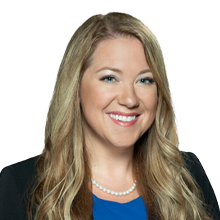“Bankruptcy courts heavily favor settlement as a means to preserve assets of the bankruptcy estate for creditors, rather than being consumed by litigation. A district court, tasked with routinely resolving patent disputes, may be more skeptical of a request to undo the work the parties requested in the first instance.”
 While many patent litigators have no plans to litigate in bankruptcy court, it is a possibility if the infringer of a client’s patent files for bankruptcy. The United States Bankruptcy Court for the Eastern District of Wisconsin recently conducted a Markman hearing. How did that happen? After being sued for patent infringement in district court, the alleged infringer sought refuge in the bankruptcy court, staying the district court litigation. The plaintiff then filed a claim in the defendant’s bankruptcy case, which ultimately triggered the bankruptcy court’s jurisdiction. While rare, other bankruptcy courts have conducted claim construction proceedings. As discussed herein, the bankruptcy court ultimately granted a joint request for vacatur, prompting us to revisit the doctrine of vacatur.
While many patent litigators have no plans to litigate in bankruptcy court, it is a possibility if the infringer of a client’s patent files for bankruptcy. The United States Bankruptcy Court for the Eastern District of Wisconsin recently conducted a Markman hearing. How did that happen? After being sued for patent infringement in district court, the alleged infringer sought refuge in the bankruptcy court, staying the district court litigation. The plaintiff then filed a claim in the defendant’s bankruptcy case, which ultimately triggered the bankruptcy court’s jurisdiction. While rare, other bankruptcy courts have conducted claim construction proceedings. As discussed herein, the bankruptcy court ultimately granted a joint request for vacatur, prompting us to revisit the doctrine of vacatur.
As often happens in patent litigation outside of bankruptcy court, after the court issued its claim construction, the parties settled. While the precedential value of a bankruptcy court’s claim construction decision is far from clear, the parties were sufficiently concerned that they asked the bankruptcy court to vacate it.
Vacatur of Claim Construction: Often a Long Shot
Parties to patent litigation evaluate the precedential impact a court’s construction of the patent’s claims could have on future intellectual property business interests. The outcome of claim construction often fuels settlement in patent litigation. After an adverse claim construction, a patent owner may request the court to vacate its claim construction decision to avoid having the construction negatively impact future disputes.
The availability of vacatur of an unfavorable decision following a settlement is far from absolute and, as discussed below, many times a long shot in patent litigation. Sometimes described as a “buy and bury” strategy, opponents of vacatur argue that court opinions are public acts of the government which should not be expunged by private agreement. There is also, they argue, a societal value to precedent. Further, it is the public that bears the costs of the judicial system and its resulting opinions. Those seeking vacatur point to countervailing public policies that settlement and ending litigation should be encouraged and facilitated.
A showing of exceptional circumstances is required to persuade an appellate court to vacate the judgment of a subordinate court following settlement. The standard for vacatur by trial courts of their own orders is lower. Federal Rule of Civil Procedure 60(b) permits a trial court to relieve a party from a final judgment or order “upon terms as are just.” In bankruptcy cases, the effect of a settlement on other creditors can weigh in favor of – or against – vacatur. Some bankruptcy courts may be more willing to vacate their own decisions if doing so will effectuate a settlement that will result in funds being made available to creditors.
Settlement versus Public Interest
In In Re: C2R Global Manufacturing, Inc., the parties used the potential for settlement as leverage to request that the bankruptcy court vacate its claim construction opinion. The bankruptcy court did so, but noted that its claim construction order would continue to exist “on the internet, available to anyone with a computer.” And, the C2R decision and its construction of the term “layer” are memorialized in the Annotated Patent Digest. Although the parties in C2R were successful in persuading the bankruptcy court to vacate the claim construction decision, had they made the request in district court, they may have not had such success.
A district court that routinely conducts Markman hearings in patent litigation may be less inclined to vacate its decision. The District Court for the District of Delaware (currently one of the most popular venues for patent litigation) declined to vacate its claim construction order after a joint request by the parties in Forest Laboratories, Inc. v. Teva Pharmaceuticals USA Inc.
After applying the Cisco factors, the court found that the public interest in the orderly operation of the federal judicial system disfavored vacatur. The court reasoned that claim construction requires court resolution and it would be “inefficient and contrary to the orderly operation of the judicial system to treat the court’s resolution of such disputes as a nullity by granting [vacatur] stipulations.” Another reason the court provided for denying the request for vacatur was that the patent litigation arose under the Hatch-Waxman Act. The purpose of the Act is to efficiently resolve challenges to pharmaceutical patents. After examining the totality of the circumstances, the court found that the public interest in orderly operation of the judicial system outweighed vacatur, even if denial of vacatur doomed a settlement.
Bankruptcy Courts May Favor Vacatur
The conflicting decisions of C2R (granting vacatur) and Forest Laboratories (denying vacatur) may have been strongly influenced by their context and forum. Bankruptcy courts heavily favor settlement as a means to preserve assets of the bankruptcy estate for creditors, rather than being consumed by litigation. A district court, tasked with routinely resolving patent disputes, may be more skeptical of a request to undo the work the parties requested in the first instance. The good news is that, if you do find yourself litigating in bankruptcy court and you have an unfavorable outcome, vacatur may be more available to your client than if the case were decided in another forum.
Image Source: Deposit Photos
Image ID:278007548
Copyright:AntonMatyukha

![[IPWatchdog Logo]](https://ipwatchdog.com/wp-content/themes/IPWatchdog%20-%202023/assets/images/temp/logo-small@2x.png)

![[[Advertisement]]](https://ipwatchdog.com/wp-content/uploads/2023/01/2021-Patent-Practice-on-Demand-1.png)

![[Advertisement]](https://ipwatchdog.com/wp-content/uploads/2024/04/Patent-Litigation-Masters-2024-sidebar-early-bird-ends-Apr-21-last-chance-700x500-1.jpg)

![[Advertisement]](https://ipwatchdog.com/wp-content/uploads/2021/12/WEBINAR-336-x-280-px.png)
![[Advertisement]](https://ipwatchdog.com/wp-content/uploads/2021/12/2021-Patent-Practice-on-Demand-recorded-Feb-2021-336-x-280.jpg)
![[Advertisement]](https://ipwatchdog.com/wp-content/uploads/2021/12/Ad-4-The-Invent-Patent-System™.png)






Join the Discussion
No comments yet.